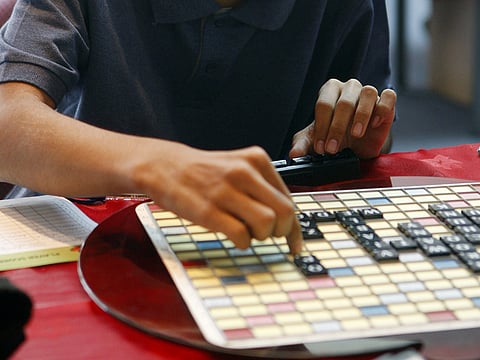How to associate words with wonders
I give the imp a smack on the head and say, a la Michael Jackson, ‘Just beat it!’

A school is where you go ... to learn, of course; but it’s also where you quickly discover that the word “uniform” has little or no relevance — apart from the fact that the pupils are attired in the same outfit.
Nothing else is remotely uniform: every single one of them is as different as peas in a pod are alike. Especially outside the classroom, during a break.
Some rush off, football in hand, for 15 sweaty minutes of kicking and marking. Another group start playing a seriously abbreviated round of cricket.
Considering that a test match can span five days, what these kids achieve in 15 minutes is anybody’s guess, but they’re happy, bowling and swatting the ball airily.
Most of them are engaged in some energy-sapping routine. Not the two pupils seated facing each other, backs resting against a pillar. If they are aware of my presence a metre away they show not the slightest indication. I am there to meet my teacher mate, Brian.
While I wait, I give idle attention to what the two youngsters are saying. A case of eavesdropping, I know, but not one of my choosing. These two kids are, evidently, the classroom brainboxes. It’s not their bodies but their brains that are receiving a “sweat out”.
From what I can tell they are playing a game that employs some sort of word association. The word appears to be “beat” or “beats”. And the two of them are attempting to think of as many associations. One of them says Dre, referring no doubt to the headphone manufacturer; the other says “eggs” and I know he means “egg beater”. Of course, he has to explain this to his opponent. And while he does so my mind makes an amusing flip backward through the years.
As a boy of ten or so I had the fortune or misfortune to be in the right place when the elderly lady neighbour knocked on my grandparents’ door and when my grandpa looked out to see who it was, he got asked, “Can I borrow your whisker for the afternoon, George?”
My grandfather stood there perplexed but, seeing as those were times that far predated cross-dressing, I don’t think he suspected for a minute that the neighbour was literally coaxing grandpa to part with some or all of his moustache.
Turned out, of course, she was after the whisk … to beat up eggs for a cake she was baking. Now, back in the schoolyard listening to the two word-associating youngsters, I wonder why indeed a whisk shouldn’t also be known as a whisker. It does the whisking after all.
Anyway, the kids have moved on ... they’ve arrived at “panels”, or panel beaters: known as auto body mechanics in some parts of the world.
It’s amazing what skill is involved in panel beating and how accomplished a job an experienced panel beater can render of a car that’s received serious dents, scrapes and other varieties of mangling.
Of course, “panel beater” leads them on to “metal” and this in turn steers their thoughts to music.
“Thrash” says one of the players, which serves as a synonym for “beat” and also a form of heavy metal music. Metallica, says the other, bringing to mind the only band to have played on all continents.
A mischievous imp in my head wishes to intrude and say, “That’s Mahler,” and watch how the two word-associates would react to the sudden diversion into classical music.
I wonder if they’d realise that “that’s Mahler” is really an anagram for “thrash metal”? But, of course, I don’t. Instead I give the imp a smack on the head and say, a la Michael Jackson, “Just beat it!”
Kevin Martin is a journalist based in Sydney, Australia.


